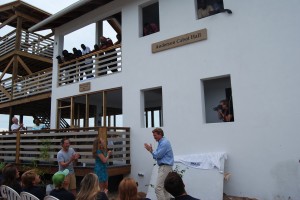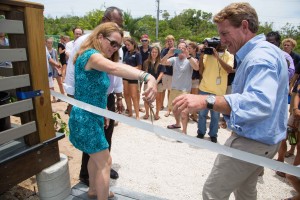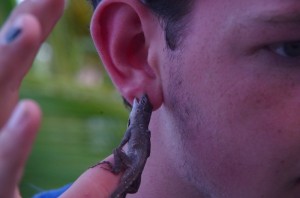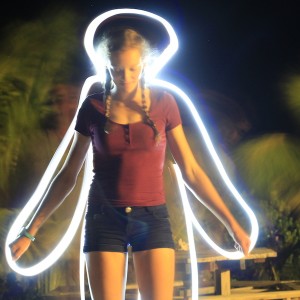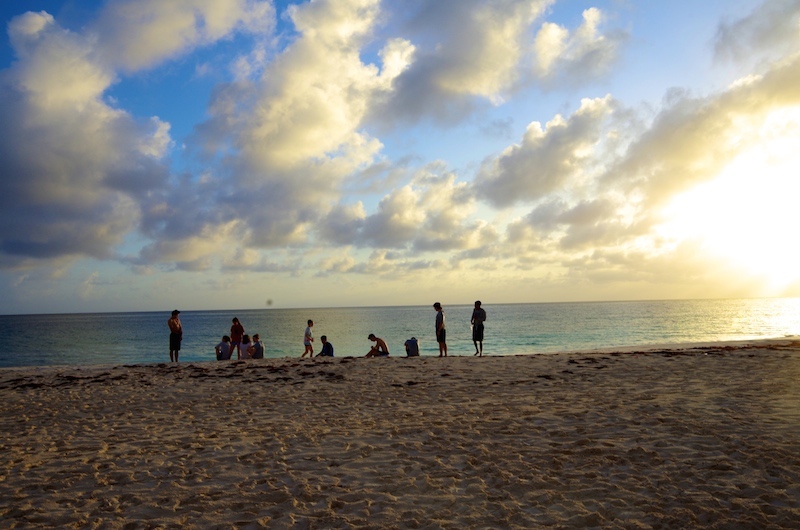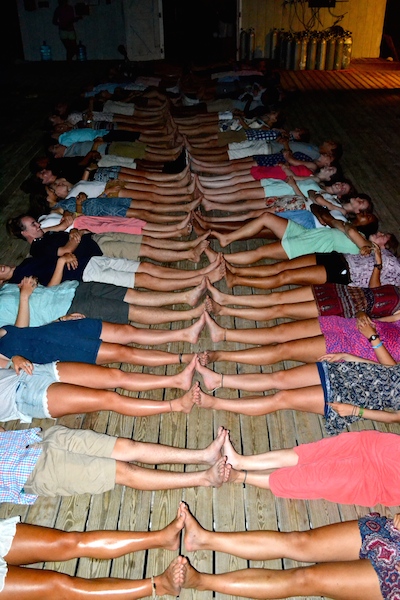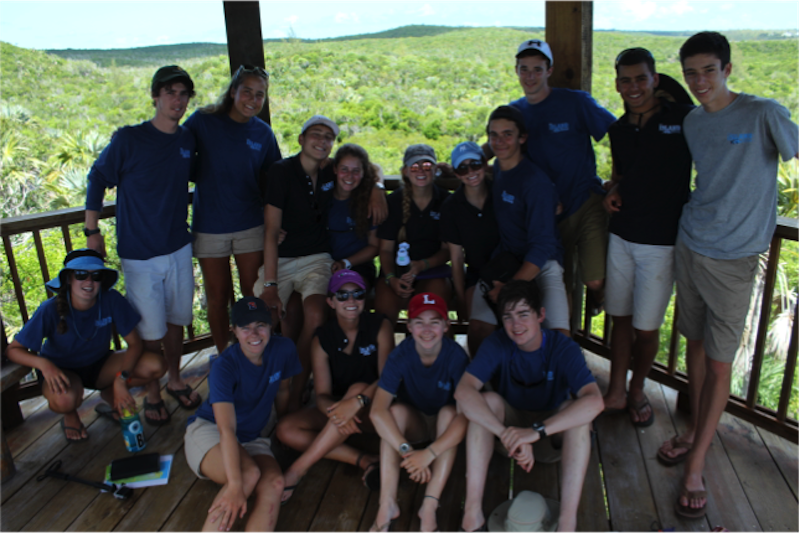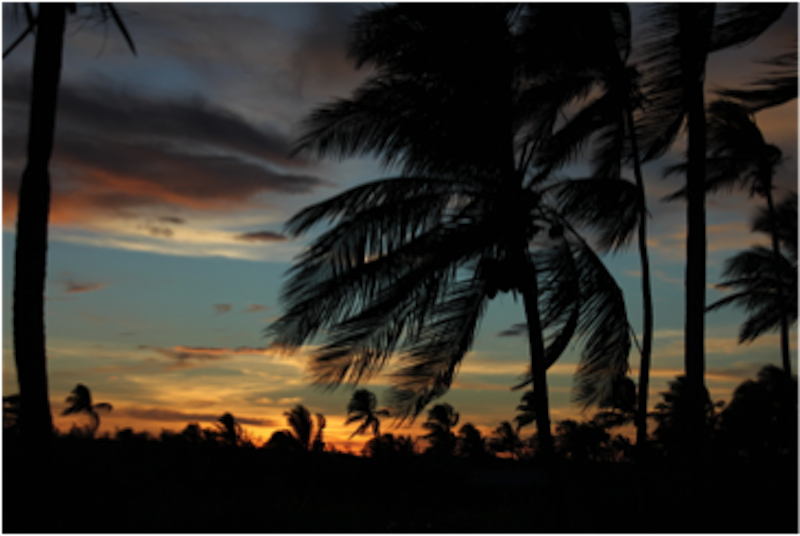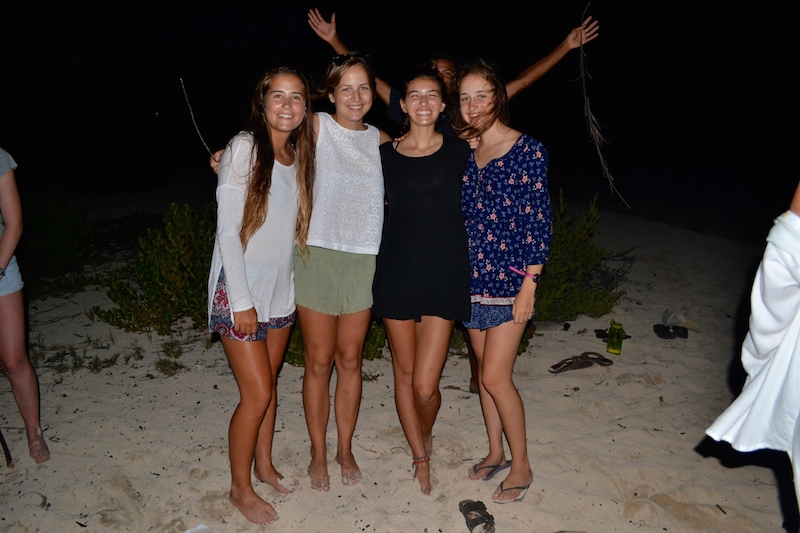A reflection piece for Histories class:
Rock Sound, a settlement in South Eleuthera, is grounded by the history of generations living there. During settlement day 1, my group wandered around for a little bit until we found something that we thought really stood out to us as a part of the community, softball. By observing and analyzing on our own, we started to scratch the surface of what this place is like and what it’s made of. Afterwards, we came together to talk about the different things we observed. As a product of this, we also saw how worldview impacted the things we observed and how we interacted with the playground and softball practice.
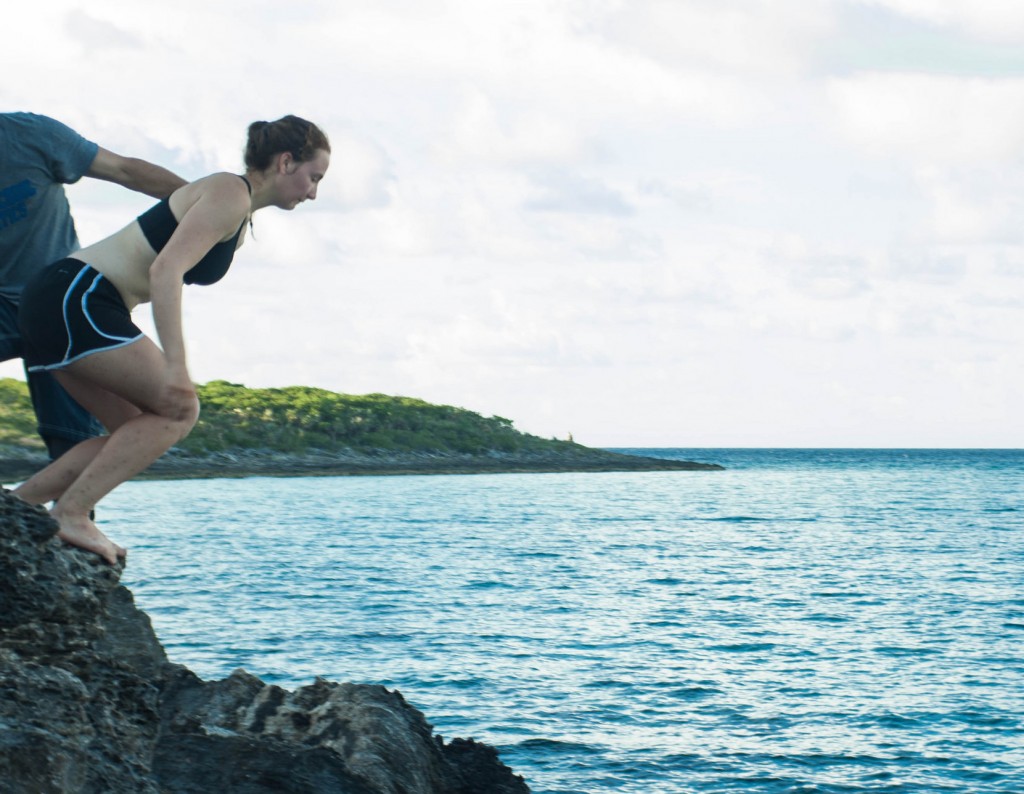
My worldview has been shaped and molded by a hodgepodge of different major life events, all affecting me on a large scale in one way or another. It first started when I was little. My oldest brother has ADHD and autism, my older brother has ADHD, and my mom also has ADHD. These things are only titles, but my experiences that came of these things, these annoyances, amounts to a whole lot. My young life didn’t revolve around me. I was only a small gear in a very large chain of gears making the clock tick. The big gears were my brothers and parents people, but sometimes, they lost a cog. Time stopped in these moments. I was also the fixer, the fixer of the clock, the fixer of time. I had to spend hours tinkering away, trying to find a way to put the cog back in place without putting anything else out of balance. Even from a young age, I was very self aware and detail oriented, knowing how to read facial expressions and body language. I had to prepare for when something was about to go down. I ran around in the background making sure everything worked. There was no glory, but it was what my family needed to have done. Even though it put me through the wringer, I am glad I had those years to teach me how to act. It gave me a piece of mind, a sense of the real world not being all flowers and unicorns like my peers thought. Of course there were some major downfalls to this situation, like being more closed off and not having a strong family dynamic, but but over time I learnt to deal with these things.
A few years passed and I had gotten tired of my hometown. In 8th grade I decided to go to boarding school, but not any boarding school. I had applied to the most prestigious and most intense prep schools in the country; I wanted to go to Andover or Exeter. After much work and debate, I got into both but decided Andover was the place for me. I wanted the intensity, revolutionary exposures and mind blowing adventures. I had no idea what I started for myself. I had not anticipated the economic status of my fellow students and the institution, the hard questions I would have to ask myself about what it means to be me or face and challenge the politics and events about race, gender, sexuality, religion, and more. Although these were hard to deal with, especially as a teenager, it opened my eyes to the cruelties and possibilities of the world and forced me to delve deeper into what it means to be a human in this day and age. I gained close friends that were personally affected by many forms of oppression happening outside campus, and a community to lead me through dissecting these moments and attacking these problems. The people gave me inspirations, and the little things from Andover – community service, cycling, living in a dorm, and more, showed me another dimension of the world – both good and bad. I gained a very large slice of perspective and an additional slice of self-awareness that was unable to be given to me back home. Without Andover, I have no idea where I would be, but definitely not on this island and not even close to the level of thinking and point of view I currently have.
As another product of attending Andover, I left the country for the first time. This summer I went on a 2.5 week language, hiking, and cultural immersion program in Peru. I spent the first month of my summer traveling around Peru, experiencing Peruvian life and nature in the raw. Despite my love for travel, I was always held back by the limitations of my brothers. Even though I had exposed to a lot of the world problems in the U.S., I had never been exposed to another country in the same manner. On one hand, I extracted massive appreciation and information about Incan history and the culture of small spots in Peru, and in turn cultures all around the world, those I haven’t even encountered. Hiking through the mountain ranges for days, fully accepting and diving into the natural world. I also saw just the magnificent power of the human mind and capability. On the flip side, I saw how modern tourism and pollution is destroying these precious ancient site.
While in Rock Sound for my settlement day, my group wandered down to the Whale Hole in an attempt to find some locals. Despite the beauty of this spot, there were no people there since it was a Saturday. Just around the corner, schoolyard peeked out. Lead by the voices of a few young kids, we found a softball practice happening in the school. This was the place. This was the topic we wanted to learn about. I tried to take in everything from the details in the setting to why kids were playing softball in the first place. As Fiona Ross describes, anthropology is “a form of disciplined curiosity” (Teen Die Pad Die Bas, 9). I was simply sitting there, letting my mind run about anything I saw. I then tried to find relationships between what I was seeing and how it has shaped softball and baseball, or been shaped by their progress in Rock Sound. Fiona Ross cites Thomas Hylland Eriksen, who said the main task of anthropology is “to create astonishment, to show that the world is both richer and more complex than it is usually assumed to be” (Teen Die Pad Die Bas, 14). The first settlement day was initiating these thoughts and connections, but the second day allowed me to delve deeper into the bigger picture and the role of baseball and softball in the community. Both of these settlement days created my own astonishment. Saturdays are a rest day, suggesting to me that it would be calm and not much would be happening. But in fact, there was so much happening that I couldn’t absorb it all. The worldview of the locals in Rock Sound and past locals have shaped the physical land that we were interacting with, but also the people on the field. Everything they did from why they were playing ball to how they were playing. The locals we talked to gave us their version of information, a version created with their own worldview. Worldview was all around us. Unseeable and physically intangible, but it was surrounding us in the form of everyone who makes up the community of Rock Sound and any predecessors. This seemingly dead place surprised me, enhancing my own world view, but also those those of my group members.
My peers observed mostly the same things as me, but there were little snippets of information that missed my radar as I was observing something else. For example, I hard a few cars honking but I didn’t notice that they were honking at the kids, encouraging them and showing support. In another sense, I think I picked up on things they missed. I spent a little bit of my time exploring how the softball fit the natural world and how the natural world was interacting with this school. According to Fiona Ross, “all knowledge is produced in relation to others – those with whom we work, those with whom we share our ideas, those against whose ideas we set our own findings, and so on” (Teen Die Pad Die Bas, 12). By using the information that I missed from my peers, I got a more comprehensive grasp of the place. Although there was much similarity, just the difference in a few things helped tremendously. What creates these differences is by our worldview.
Our worldview tells our mind what details to pick up on, where to focus our attention. Our past experiences draw our focus into certain aspects to find connection between ourselves and the thing being studied. In The Cartographer Tries to Map A Way To Zion, Kei Miller explains the relationship between a local and newcomer, and how their worldview changes what is seen about the place. Where the cartographer sees a road, the rastaman hears the songs and history of the roads (The Cartographer Tries to Map A Way To Zion, 31). I tried to grasp everything while in the playground watching the softball practice. My attention to detail about the practice came from paying attention to my brothers, interpreting their every move. In a similar fashion as what I did for my brothers, I analyzed the softball player’s emotions and the coaches style of teaching. My care about the environment and the environmental interaction came from being in the outdoors. I naturally pick out the birds and the wind in the background, the trash on the ground, the plant and grass conditions from constantly having to be connected with the earth around me while hiking, cycling, and exploring. I made a lot of connections with Peru. Seeing what condition Rock Sound was in and the role tourism plays was very similar to that of the Peruvian sites that were once pristine and were now overrun by tourists and their residue. I found myself asking a lot of “What” questions, but more often I followed up with “Why” questions, even though I didn’t write them all down, I always took the next step into thinking. Andover has trained me to think about the motives and the explanation for my findings. Although I tried to remain unbiased, I think my bias came out when I was trying to find those answers. I didn’t know all that much about Rock Sound, so I had to use my best guesses from the Island School, back home, and anywhere else I had visited for an extended period of time. If I were to remain unbiased, I should have left those questions unanswered but being me, my mind automatically needs to probe around and think of possible answers before moving on. I knew they were only speculations, so I tried the best I could to make accurate assumptions but knew there was a good change they were not the right answer. Worldview impacts me and my fellow students daily, even in other Island School classes.
A main part of the marine ecology course is scuba diving at Harbour Rocks and observing a specific part of coral reef life each week. As the classes progress, I gain a more comprehensive understanding of the coral reef. These dives are very similar to settlement days. The better I pay attention to the rock, the more little details become apparent. If my mind wanders or I don’t spend the appropriate time looking at something, crucial elements are lost. Some of those moments are very rare opportunities, so it is critical that I keep my eyes peeled and attentive. Even though I have to keep eyes on the task at hand, I also have to always be aware of my surroundings and my own boundaries. If one isn’t attuned to the things around them, there can be serious consequences. In there same way, settlement days need full attention or else things can be missed. Although there isn’t a life threatening aspect to settlement days, surroundings are just as important and knowing the boundaries to show respect for the culture are critical in these situations. Although my job is to learn, I have to keep my comments and questions within reason.
My time at the settlement has been extremely positive, and I am so happy this project exists because otherwise I would have never known about the places like this on Eleuthera and the history behind them. Not only has it taught me things about the connections inside and outside of Eleuthera, it has taught me about my interest in culture and worldview. I never really thought about how and why we see different things, and that those things could be so deeply rooted in us as humans. Whether or not we use our worldview is not up to us. It is omnipresent. It has personally shaped each and every one of us into different people. My worldview has greatly shaped my time in Rock Sound observing and absorbing, as well as the locals who have provided me with the culture which I am learning and growing from. I hope to continue delving deeper into the ideas of culture and worldview with experiences such as these.

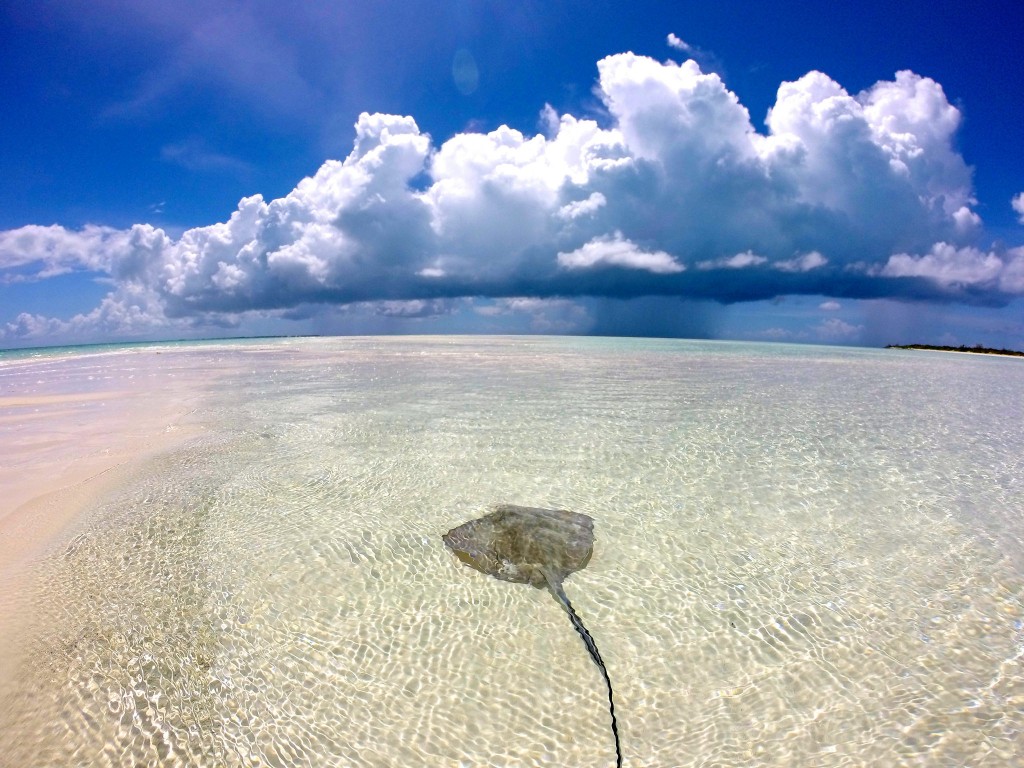
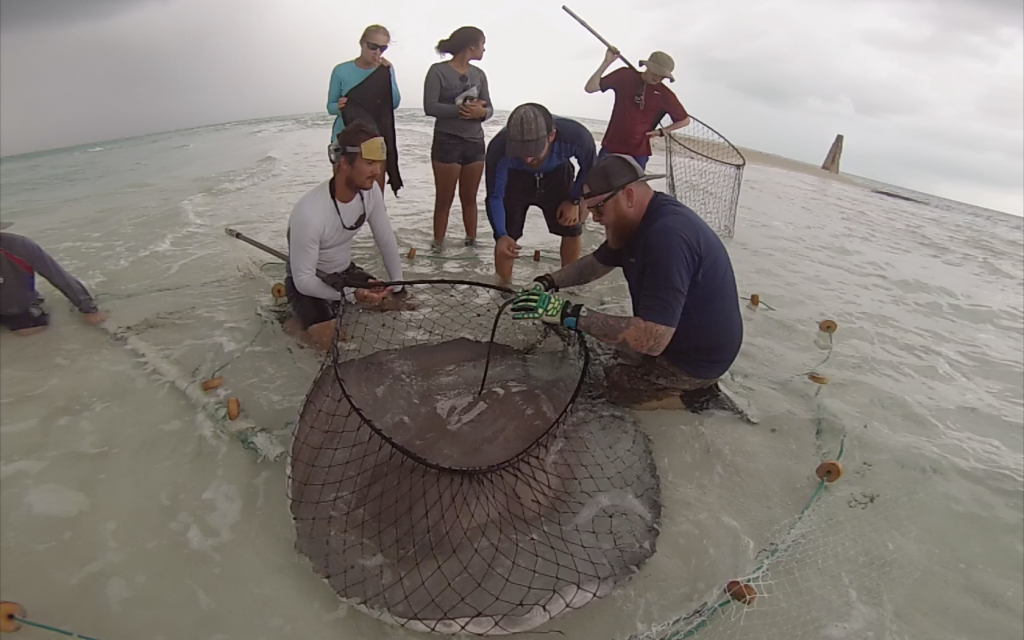
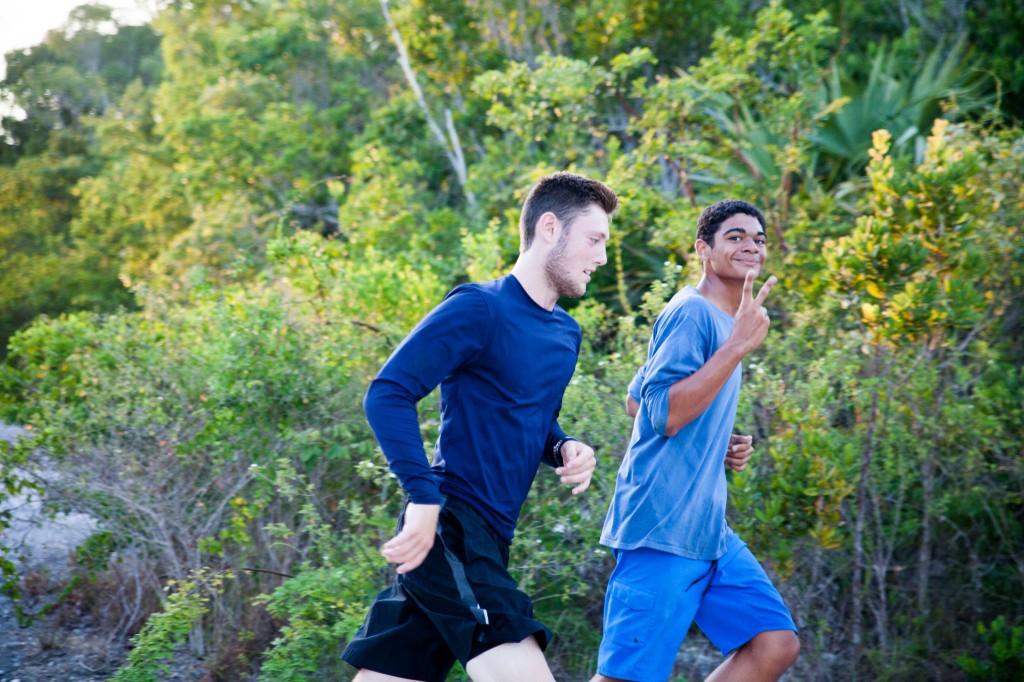
 e time. I networked almost around the clock, gleaning information from Island School colleagues. I stayed healthy in mind body, and spirit. I discussed pedagogy with a variety of teachers from different backgrounds” said Holly Houston, a veteran art teacher from Yarmouth Maine.
e time. I networked almost around the clock, gleaning information from Island School colleagues. I stayed healthy in mind body, and spirit. I discussed pedagogy with a variety of teachers from different backgrounds” said Holly Houston, a veteran art teacher from Yarmouth Maine.

